CET Code - E129 PGCET Code : MBA - B300 MCA -C484
The Department of Computer Science and Engineering was setup during the inception of the college in 2002. The current intake of the department is 240. The primary objective of this program is to prepare students for successful careers in Computer and Information technology industry that meet the needs of Indian and multinational organizations. The Department was provisionally accredited by NBA in the first cycle from June 2013 to May 2015, in the second cycle under OBE for six years from July 2016 to June 2022 and from July 2022 to June 2025 in the third cycle.
The program involves wide variety of courses which enable the students to formulate, solve and analyze computer engineering problems, prepare them for graduate studies and develop the ability to synthesize data and technical concepts for application design & implementation of real time software products. The faculty of the Department are actively involved in teaching and research with specializations in Machine Learning, Computer Vision, Process Mining, Natural Language Processing, Computer Networks and Soft & Evolutionary Computing.
Department offers Minor Degree in AIML and Data Science.
Facilities:
STUDENTS
NUMBER OF FACULTY
NUMBER OF LABS
PLACEMENT (LAST 5 YEARS AVERAGE)
By the end of the undergraduate programme in CSE, graduates will be able to:
By the end of the undergraduate programme in CSE, graduates will be able to:



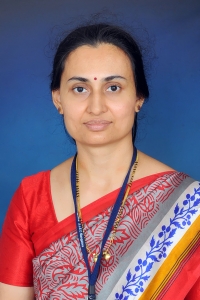

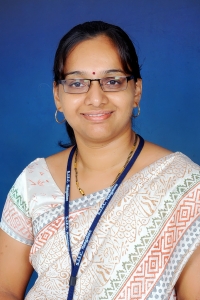
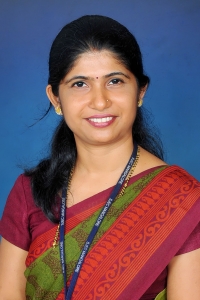
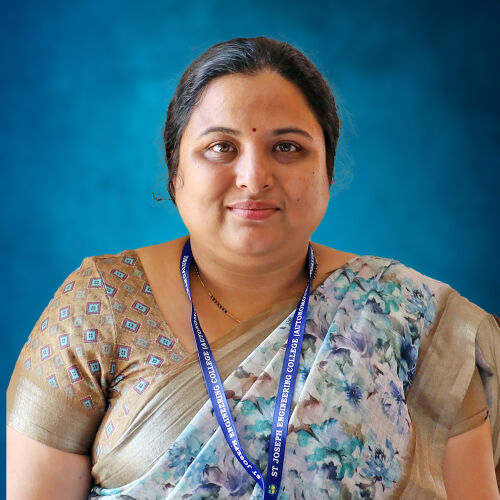
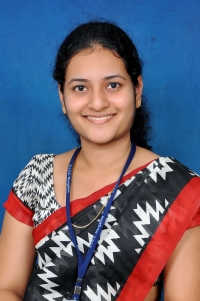

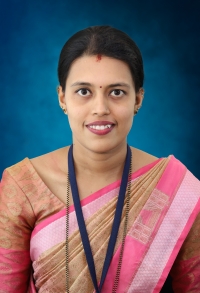
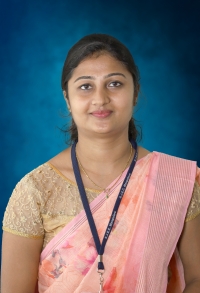
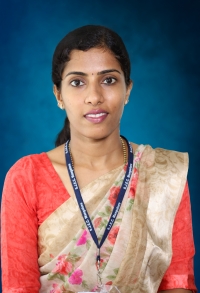
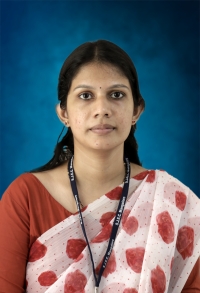
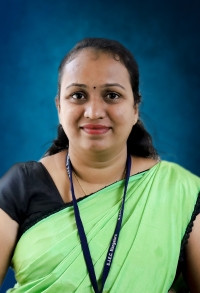


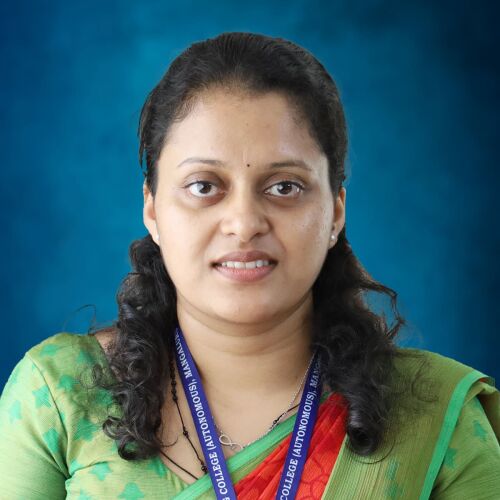
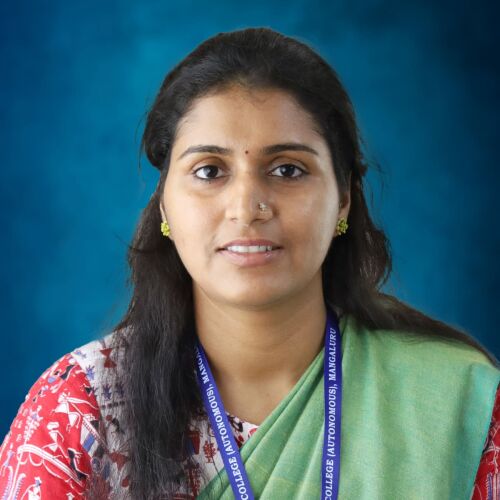
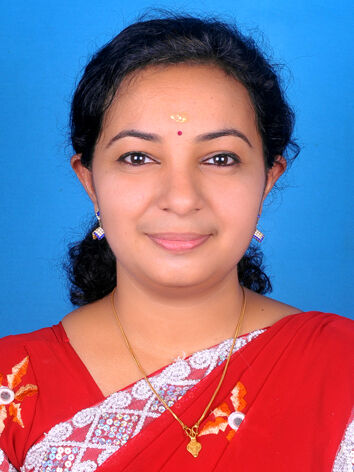
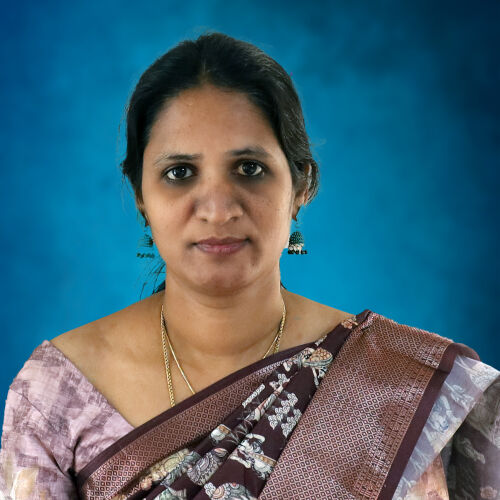


The Department of Computer Science and Engineering boasts over 600 textbooks and technical works, forming an unparalleled resource for comprehensive learning. The texts encompass a diverse array of subjects, from advanced computer architecture and embedded system design to simulation techniques and the intricacies of deep machine learning, these texts offer a trove of knowledge. This curated collection stands as a testament to the department's commitment to fostering a holistic understanding of the ever-evolving world of computer science, providing students and researchers with the tools to excel in their academic journeys.
For more information visit: https://sites.google.com/view/cselibrary/home
Computer Science and Engineering Department aims at building the students’ career by placing special emphasis on all-round development of students. Our thrust will be on an open and dynamic system of education that is driven by continuous interaction with Industry. Interactive sessions with experts from both academia and industry are constantly held so as to enable students to gain knowledge on diverse and emerging perspectives. The Department actively coordinates Campus Connect programme of Infosys Technologies Limited to mould the students of IT related branches in software technology and development. The Department frequently conducts training programs of EMC2 on Storage Area Networks (SAN) for the students. The Placement has been scaling higher and higher peaks right from its first year with top level internationally renowned companies recruiting students. The Department conducts bridge courses namely for the students to make them industry ready and thereby improve placement opportunities.
| S No | Company Name | Package | Number of students placed |
|---|---|---|---|
| 1 | Novigo Solutions | 5 .00 & 4.00 LPA | 9 |
| 2 | Mangalore Infotech | 3.6 LPA | 6 |
| 3 | HP | 8 LPA | 2 |
| 4 | Surya Software | 7 LPA | 3 |
| 5 | Exalca Technologies | 2.7L PA to 3.5L PA | 1 |
| 6 | Accenture | 4.5 LPA | 7 |
| 7 | Streebo Solutions Pvt. Ltd | 5 LPA | 1 |
| 8 | Codeyoung | 7.36 LPA | 4 |
| 9 | Global ESoftsys | 4 to 4.5 LPA | 5 |
| 10 | CodeCraft Technologies | 4 to 5 LPA | 2 |
| 11 | Comviva | 3.75 LPA | 2 |
| 12 | Cohesity | 22.7 LPA | 1 |
| 13 | Systemian Technologies | 3-4 LPA | 3 |
| 14 | Stellium Consulting | 3 | |
| 15 | Access Reserach Lab | 3-4 LPA | 6 |
| 16 | 7Edge | 3.36 LPA | 3 |
| 17 | Multicoreware | 8 LPA | 1 |
| 18 | Intellipaat Software Solutions | 3.62 LPA | 17 |
| 19 | Poornam Info Vision | 3.98 LPA | 4 |
| 20 | ApMoSys Technologies | 4- 6 LPA | 7 |
| 21 | Pragathi Prerana | 3.8 to 6 LPA | 4 |
| 22 | Skolar | 6.00 LPA- 9.00 LPA | 2 |
| 23 | Visteon | 3.00 LPA | 1 |
| 24 | Academic Counsellor-Teachnook | 4-6 LPA | 22 |
| 25 | Stratogent Technology Services. | 3.2 LPA to 3.8 LPA | 1 |
| 26 | CapitalVia Group | 3.5 LPA | 1 |
| 27 | BlueFlame Labs | 4.50 to 12 LPQA | 2 |
| 28 | Signzy Technology | 7 LPA | 1 |
| 29 | Invenger Technologies | 5.00 LPA | 7 |
| 30 | Capillary Technologies | 11 LPA | 2 |
| 31 | Skolar | 6.00 LPA- 9.00 LPA | 3 |
| 32 | Skill Winner | 3.5 LPA | 10 |
| 33 | ZOSH Aerospace | 3.3 LPA | 2 |
| 34 | Morae Solutions | 5.5 LPA | 4 |
| 35 | Rinex Technologies | 4 LPA | 7 |
| 36 | Impelsys | 6 LPA | 3 |
| 37 | Persistent Systems | 5.00 LPA | 7 |
| 38 | Everi Holdings | 7.00 LPA | 5 |
| 39 | ALLSEC Technologies | 2.02 LPA | 2 |
| 40 | Ukshati Technologies | 1.44 LPA(6 Months) | 2 |
| 41 | KodNest Technologies | 2.4 LPA | 34 |
| 42 | Palle Technologies | 3.00 LPA | 10 |
| 43 | EGDK(micro degree) | 8 | |
| 44 | KGiSL Micro College | 4 LPA | 2 |
| 46 | HashedIn | 8.1LPA | 1 |
| 47 | X-workZ | 6 | |
| 48 | 7Edge | 4 | |
| 49 | Accenture (Hack Diva) | 7 | |
| 50 | iOPEX Technologies | 4 LPA | 1 |
| 51 | Corizo | 4 LPA | 2 |
| 52 | Glowtoch Technologies | 2.67LPA | 1 |
| 53 | Leucine | 2 | |
| Total | 253 |
| SL.NO | Company Name | No. Of Students Placed |
|---|---|---|
| 1 | Codeyoung | 25 |
| 2 | Multicoreware | 1 |
| 3 | Capillary Technologies | 2 |
| 4 | Surya Software | 3 |
| 5 | SAP | 4 |
| 6 | Novigo Solutions | 10 |
| 7 | Nineleaps | 2 |
| 8 | Global E-Softsys | 4 |
| 9 | Propel | 1 |
| 10 | Comviva | 18 |
| 11 | Stellium Consulting | 3 |
| 12 | 7Edge | 3 |
| 14 | SYX Service | 7 |
| 15 | Hitachi Vantara | 10 |
| 16 | Mangalore Infotech | 4 |
| 17 | CodeCraft Technologies | 1 |
| 18 | Neebal Technologies Pvt. Ltd. | 1 |
| 19 | Tech Mahindra | 8 |
| 20 | SLK Software | 2 |
| 21 | HP | 2 |
| 22 | 99 Games | 1 |
| 23 | Upskillz | 52 |
| 24 | InMovidu Tech | 11 |
| 25 | Unschool | 5 |
| 26 | Intellipaat | 22 |
| 28 | Acess Research Lab | 4 |
| 31 | bitLabs | 19 |
| 32 | Acmegrade Pvt Ltd | 8 |
| 35 | Cohesity | 1 |
| 36 | MResult | 6 |
| 37 | Rinex Technologies | 9 |
| 38 | Hexaware Technologies | 1 |
| 39 | TCS(Ninja) | 10 |
| 40 | TCS(Digital) | 4 |
| 41 | Invenger Technologies | 8 |
| 43 | Thoughtfocus | 4 |
| 47 | Cargill | 1 |
| 49 | Pi Square | 1 |
| 54 | GlowToch | 9 |
| 61 | QSpider | 7 |
| 66 | Ethnus JOSH Mithra | 12 |
| 67 | Academor | 6 |
| 68 | Primesophic Technologies | 3 |
| 69 | Sonata Software | 6 |
| 72 | Almasons Consulting | 7 |
| 73 | TAP Academy | 2 |
| 76 | Pragati Automation and Prerana Engineering Works | 3 |
| 78 | Accord | 3 |
| 80 | Property Pistol | 1 |
| 87 | 7Edge | 4 |
| 88 | Ducom Aerospace | 1 |
| 94 | Winman Software | 2 |
| 96 | KodNest Technologies Pvt. Ltd. | 2 |
| Total Offers | 346 | |
| SL.NO | Company Name | No. Of Students Placed |
|---|---|---|
| 1 | SAP | 1 |
| 2 | VMWare | 5 |
| 3 | She Codes (Accolite Digital) | 1 |
| 4 | Novigo Solution | 7 |
| 5 | Robosoft Technoogies | 6 |
| 6 | Cohesity | 1 |
| 7 | LTI | 1 |
| 8 | GainInsights | 4 |
| 9 | HashedIn | 2 |
| 10 | TCS | 23 |
| 11 | Wipro Talent Next | 12 |
| 12 | Wipro NTH | 3 |
| 13 | Niveus Solutions | 1 |
| 14 | Winwire | 6 |
| 15 | Sasken Technologies | 1 |
| 16 | Mangalore Infotech | 5 |
| 17 | Hexaware | 7 |
| 18 | Global E-Softsys | 4 |
| 19 | Persistent | 7 |
| 20 | Impelsys | 3 |
| 21 | Cognizant | 10 |
| 22 | Zensar | 7 |
| 23 | Infosys | 18 |
| 24 | MResult | 1 |
| 25 | Tech Mahindra | 2 |
| 26 | SYX Services | 4 |
| 27 | IBM | 1 |
| 28 | Evobi Automations | 1 |
| 29 | Vrize | 2 |
| 30 | Cognitive Cloud | 10 |
| 31 | BNP Paribas | 1 |
| 32 | Harman Connected Services | 2 |
| 33 | Palle Technologies | 4 |
| 34 | Diabsolut | 1 |
| 35 | Harman Kardon | 5 |
| 36 | Everi India | 2 |
| 37 | Clarivate Analytics | 1 |
| 38 | Maverix | 4 |
| 39 | Sonata Software | 4 |
| 40 | Telenetix | 1 |
| 41 | ITC Infotech | 1 |
| 42 | Invenger Technologies | 1 |
| 43 | Grifeo | 1 |
| 44 | Narayan Health | 1 |
| 45 | Intellipaat | 2 |
| 46 | o9 Solutions | 1 |
| 47 | Qualitest | 1 |
| 48 | Pentagon Space CSR | 1 |
| 49 | Samsung | 2 |
| 50 | Rinex Technologies | 1 |
| 51 | CirrusLabs | 1 |
| 52 | Upskillz EduTech Pvt Ltd | 2 |
| 53 | Empulse Global | 1 |
| 54 | Bosch Ltd | 1 |
| TOTAL OFFERS | 198 | |
| SL.NO | Company Name | No. Of Students Placed |
|---|---|---|
| 1 | 7Edge | 4 |
| 2 | CodeCaft Technologies | 2 |
| 3 | Cognizant | 12 |
| 4 | Cohesity | 1 |
| 5 | Global ESoftSys | 3 |
| 6 | Hexaware | 1 |
| 7 | Infosys | 15 |
| 8 | Infosys Hackwithinfy | 1 |
| 9 | iOPEX | 2 |
| 10 | LTI | 30 |
| 11 | Maventic | 1 |
| 12 | Novigo Solutions | 5 |
| 13 | Qspiders | 2 |
| 14 | Planet Spark | 1 |
| 15 | NTT Data | 1 |
| 16 | Robosoft Technologies | 4 |
| 17 | SAP | 5 |
| 18 | SLK Software | 4 |
| 19 | Socite General | 1 |
| 20 | TCS | 33 |
| 21 | TCS Codvita | 2 |
| 22 | Technologics Global | 1 |
| 23 | VMWare | 4 |
| 24 | WinWire Technologies | 1 |
| 25 | Wipro Talent Next | 7 |
| 26 | Accenture | 3 |
| 27 | Hashedin Technologies | 2 |
| Total | 148 | |
| SL.NO | Company Name | No. Of Students Placed |
|---|---|---|
| 1 | Cohesity | 1 |
| 2 | VMWare | 4 |
| 3 | Cargill | 3 |
| 4 | Analytic Quotient | 5 |
| 5 | InfyTQ | 5 |
| 6 | IBM | 1 |
| 7 | Cognizant | 4 |
| 8 | Juspay | 2 |
| 9 | Global Esoftsys | 6 |
| 10 | Bosch Automotive Electronics | 1 |
| 11 | Capgemini | 3 |
| 12 | Wipro | 12 |
| 13 | Wipro(phase 2) | 8 |
| 14 | ITC Infotech | 12 |
| 15 | DXC Technology(Product) | 5 |
| 16 | Infosys | 33 |
| 17 | TCS | 20 |
| 18 | LTI | 7 |
| TOTAL | 191 | |
| SL.NO | Company Name | No. Of Students Placed |
|---|---|---|
| 1 | ITC Infotech Ltd | 19 |
| 2 | Decathalon | 2 |
| 3 | Novigo Solutions | 3 |
| 4 | L&T Infotech | 18 |
| 5 | TCS Codevita | 4 |
| 6 | Robosoft Technologies | 1 |
| 7 | SLK Software | 2 |
| 8 | TCS Ninja | 18 |
| 9 | Mindtree | 4 |
| 10 | Mphasis | 4 |
| 11 | SAP Labs | 2 |
| 12 | Global Esoftsys | 1 |
| 13 | VMWare | 5 |
| 14 | Accord Global Technology Solutions P. Ltd | 1 |
| 15 | Wipro | 14 |
| 16 | HSBC | 3 |
| 17 | 24/7 | 11 |
| 18 | TCS (Digital) | 1 |
| 19 | Sunrise Biztech | 1 |
| 20 | Infosys | 13 |
| 21 | IBM | 7 |
| 22 | Kreatio Software Pvt Ltd | 2 |
| 23 | Amazon - VCSA | 7 |
| 24 | Qspider | 2 |
| 25 | Precision IT | 1 |
| 26 | Thomson Rueters (Renitiv) (Off Campus) | 5 |
| 27 | Diya Systems | 1 |
| 28 | TCS(Off Campus) | 1 |
| TOTAL | 154 | |
| SL.NO | Company Name | No. Of Students Placed |
|---|---|---|
| 1 | 99Games Online Pvt. Ltd | 1 |
| 2 | L&T Infotech | 35 |
| 3 | Moonraft Innovation Labs | 1 |
| 4 | TCS | 1 |
| 5 | Robosoft Technologies | 1 |
| 6 | Novigo Solutions | 1 |
| 7 | ITC Infotech | 5 |
| 8 | VMWare | 3 |
| 9 | SAP | 3 |
| 10 | BirlaSoft | 8 |
| 11 | Maventic | 3 |
| 12 | SLK Software Sercies | 1 |
| 13 | Global Esoftsys | 2 |
| 14 | Kreatio Software | 2 |
| 15 | Decathlon | 2 |
| 16 | Mindtree | 6 |
| 17 | 24/7 | 1 |
| 18 | Citrix R&D | 13 |
| 19 | 24/7. ai | 1 |
| 20 | Qspiders | 1 |
| 21 | Infosys | 1 |
| 22 | HGS | 18 |
| 23 | Subex | 1 |
| 24 | Wipro | 1 |
| 25 | Almasons | 2 |
| 26 | DXC Technology | 2 |
| TOTAL | 116 | |
| Sl. No. | Name of the Research Supervisor | Name of the University from which Ph. D is awarded | Year of Award | Specialization |
|---|---|---|---|---|
| 1 | Dr Rio D'Souza | NITK, Surathkal | 2011 | Evolutionary Computing |
| 2 | Dr Sridevi Saralaya | VTU, Belagavi | 2017 | Business Intelligence |
| 3 | Dr Shreenath Acharya | VTU, Belagavi | 2021 | Cloud Computing |
| 4 | Dr Harivinod N | Mangalore University | 2020 |
Machine Learning, Computer Vision
|
|
5 |
Dr Saumya Y M |
National Institute of Technology, Karnataka |
2002 |
Graph theory and its applications in Computer Science |
|
6 |
Dr Shrisha H S |
Visvesvaraya Technological University
|
2023 |
Computer Networks, Artificial Intelligence |
| Sl. No. | Name of the Candidate | Year of Registration | Supervisor | Part/Full Time | Year Awarded |
|---|---|---|---|---|---|
| 1 | Dr Veena Desai | 2015 | Dr Rio D'Souza | Part Time | 2023 |
| 2 | Dr Anushree Raj | 2015 | Dr Rio D'Souza | Part Time | 2023 |
| 3 | Dr Alice D'Souza DM | 2015 | Dr Rio D'Souza | Part Time | 2023 |
| 4 | Dr Athokpam Bikramjit Singh | 2015 | Dr Rio D'Souza | Part Time | 2023 |
5 |
Dr Sunitha Guruprasad | 2013 | Dr Rio D'Souza | Part Time | 2023 |
| 6 | Dr Shreenath Acharya | 2012 | Dr Demian Antony D'Mello | Part Time | 2021 |
| 7 | Dr Sunil Bola Kamath | 2012 | Dr Rio D'Souza | Part Time | 2020 |
| 8 | Dr Roshan Fernandes | 2013 | Dr Rio D'Souza | Part Time | 2019 |
| 9 | Dr Jyothi Shetty | 2015 | Dr Demian Antony D’Mello | Part Time | 2017 |
| 10 | Dr Sridevi Saralaya | 2012 | Dr Rio D'Souza | Part Time | 2017 |
Title of Project: Deep learning based drug target interaction prediction using multimodal data
Name of the Coordinator- Dr. Sofia Rego, Dr. Shrisha H S, and Dr, Saumya Y M
Funded by: SJEC
Year of Sanction: 25 July 2023
Total Amount: Rs. 100000.00
Title of Project: Investigation of Autonomous Spectrum Management for Cognitive Radio Systems
Name of the Coordinator- Dr. Sofia Rego and Dr. Shrisha H S
Funded by: SJEC
Year of Sanction: 25 July 2023
Total Amount: Rs. 90000.00
Title of Project: Center of Excellence in Advanced Augmented Reality(AR) and Virtual Reality(VR)
Name of the Coordinator- Dr Sridevi Saralaya
Funded by: AICTE
Year of Sanction: 2021-22
Total Amount: Rs. 1202000.00
Title of Project: Identification of Maize Fall Armyworm, Spodoptera Frugiperda using Deep learning approach based drug target interaction prediction using multimodal data
Name of the Coordinator- Dr. Harivinod N
Funded by: SJEC
Year of Sanction: 27 November 2021
Total Amount: Rs. 262000.00
| Sl. No. | Name | Year of Registration | Guide | Full/Part Time Time |
|---|---|---|---|---|
| 1 | Ms Namitha P | 2024 | Dr Sridevi Saralaya | Part Time |
| 2 | Mr Prithvi D Souza | 2024 | Dr Sridevi Saralaya | Part Time |
| 3 | Ms Prathibha Ganapati Gaonkar | 2023 | Dr Shreenath Acharya | Part Time |
| 4 | Mr Rama Moorthy H | 2023 | Dr Shreenath Acharya | Part Time |
| 5 | Mr Sunil Kumar Aithal S | 2021 | Dr Shreenath Acharya | Part Time |
| 6 | Ms Ushadevi A | 2021 | Dr Sridevi Saralaya | Part Time |
| 7 | Ms Teena A James | 2021 | Dr Shreenath Acharya | Part Time |
| Sl. No. | Name | Year of Registration | Guide | Co-Guide | Full/Part Time Time | Research Center |
|---|---|---|---|---|---|---|
| 1 | Ms Jaishma Kumari | 2024 | Dr Radhakrishna Bhat | Part Time | MIT Manipal, MAHE | |
| 2 | Ms Shiji Abraham | 2024 | Dr Priya Kamat | Part Time | SCEM Adyar, Mangaluru | |
| 3 | Ms Supriya Salian | 2023 | Dr Manjula Gururaj | Dr Shreeranga Bhat | Part Time | NMAMIT NItte, Nitte University |
| 4 | Ms Nisha Jenifer Roche | 2023 | Dr Roshan Fernandes | Dr Shreenath Acharya | Part Time | NMAMIT NItte, Nitte University |
Total Computing Systems: 17 Nos.
| Item Description | Configuration | Total Count |
|---|---|---|
| FTP Server | Intel Core i3 2.93GHz Processor, Intel DH55PJ Chipset, DDR3 RAM Zion 4 GB/ 1333MHz, HDD WD 750GB SATA, Monitor TFT AOC 18.5’’, Keyboard and Mouse Logitech USB. | 1 |
| Workstation | Intel Core i7, 11th generation Processor, 64GB DDR4 RAM, 500GB SSD, 2TB HDD NVIDIA RTX3060Ti 8GB DDR6 256 bit Graphics card | 1 |
| Workstation | Intel XEON E3-1125 V6, 16GB RAM, 256 GB SSD, 2TB HDD, Dell Monitor 19.5 D2020H LED”, Graphic Card 11GB DDR6 RTX 2080 TI ZOTA | 1 |
| Workstation | Intel XEON E3-1125 V6, 16GB RAM, 256 GB SSD, 1TB HDD, Dell Monitor 18.5”, Graphic Card 11GB DDR6 RTX 2080 TI ZOTAC | 1 |
| Desktop Computer | Asus Core i5-8400 CPU, 8+8 GB DDR4 RAM, 240+240 GB SSD, GTX1060 6G, Monitor 18.5” Dell | 1 |
| Desktop Computer | Core i5-7400 CPU@3.00 GHz Processor, Gigabyte H110M-S2 Chipset, 16 GB DDR4 2400MHZ Zion RAM,1TB HDD, 1TB SDD, Monitor Dell 18.5, INN03D GeForce RTX 2080 Ti Graphics Card 11 GB GDD R6. | 1 |
| Desktop Computer | Server IBM X3100M4-25821KA, 4GB RAM, 500GB HDD, Monitor Dell 18.5” LED, Dell Keyboard and Mouse. | 1 |
| Desktop Computer | Intel Core I7 8700 GHZ 8th Gen Processor, Gigabyte B360M D3H Chipset, 16 GB RAM, 1 TB HDD, Logitech Keyboard and Mouse, Monitor Dell 18.5” | 2 |
| Desktop Computer | Intel Core i7 3.40GHz Processor, HP Pro 3330 MT Chipset, DDR3 RAM 4+8 GB, 500 HDD SATA,240 GB SDD, Monitor HP 17”, Keyboard and Mouse HP USB | 4 |
| Desktop Computer | IntelCore i5-7400 CPU@3.00 GHz Processor, Gigabyte H110M-S2 Chipset, 8+8 GB DDR4 2400MHZ RAM, 240 GB SDD,1TB HDD, Monitor 18.5” Dell | 3 |
| Desktop Computer | Core i5-7400 CPU@3.00 GHz Processor, Gigabyte H110M-H Chipset, 8 +8 GB DDR4 2400MHZ Zion RAM, 1TB HDD, Monitor AOC 18.5” | 1 |
| Printer | Canon LBP2900 | 2 |
| Printer | HP LaserJet 1020 | 1 |
| Printer with Scanner | Canon image CLASS MF3010 | 1 |
| Scanner | HP Scanjet G2410 | 2 |
| Sl. No. | Facility available | Details of Funds Spent | Grants[VGST/Seed Money] |
|---|---|---|---|
| 1 | Desktop Computers: 16 Intel Core i7 3.40GHz Processor, HP Pro 3330 MT Chipset, DDR3 RAM 4 GB, 500 HDD SATA, 100/1000 Gigabit Ethernet Card, Monitor HP 17”, Keyboard and Mouse HP USB. Printers: 5 Canon LBP2900: 2 HP Laserjet 1020: 2 HP Laserjet 1018: 1 Scanner: 2 HP Scanjet G2410 - 2 |
43,000 x 16 = 6,88,000/- | SJEC management support |
| 2 | 1. Dell Precision Tower 3620 XCTO BASE (2 Nos.) 2. Intel Based Desktop Computer-i7 8th Generation (16GB DDR4 Memory, Cooler master 450 W SMPS) (2 Nos.) 3. ZOTAC GEFORCE RTX 2080 TI Graphics Card (2 Nos.) 4. Molex Cat 6 UTP Cable (25 meters ) 5. Collins Multi-lingual Database (MLD) -Word Bank (6 Languages) 6. Collins Multi-lingual Database (MLD) -Phrase Bank (2 Languages) 7. Intel Core I7, 16GB RAM, 1 TB HDD(2 Nos) 8. Intel Asusi5 8GB Ram 1TB HDD 9. Graphic Card 11Gb DDR6 RTX 2080 T1 ZOTAC 10. Jumper Wires set |
4,15,480/- 52,550/- 1,10,300/- 1,800/- |
VGST https://drive.google.com/drive/folders/1nkQjGltKht9NyogGYxuy6GnbnZj4hakQ?usp=sharing Seed Money https://drive.google.com/drive/folders/10u_EbJ8sC8X_6IMz8ERq8LcnduPoXs1v?usp=sharing |
| Staff Awards | ||
|---|---|---|
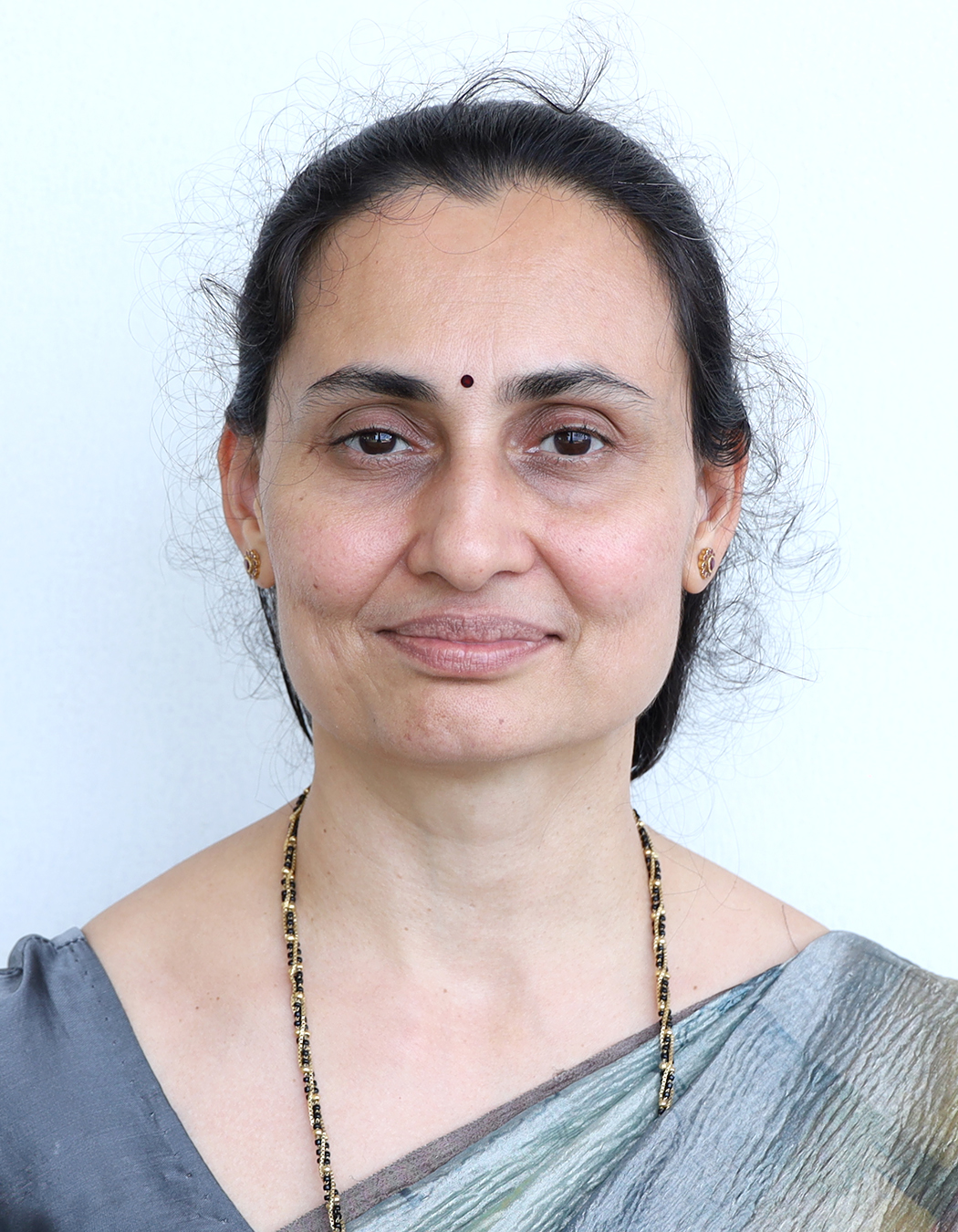 |
Dr Sridevi Saralaya, Professor and HoD-CSE was awarded the Best Paper Award for the paper titled “Retromailer- An Email Marketing Campaign using Amazon SES” presented in IEEE International Conference on Smart Technologies and Systems for Next Generation Computing (ICSTSN 2023). |
|
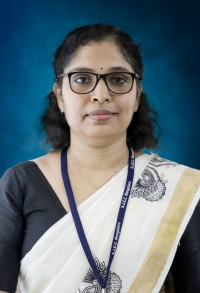 |
Ms Namitha Parikkal has been selected as the winner of the Art of Teaching 2.0 competition, an initiative organized by GTech µLearn to honor exceptional teachers who play a crucial role in shaping the future generation. |
|
 |
Research article titled “NVS-GAN: Benefit of generative adversarial network on novel view synthesis” authored by Dr. Shrisha H.S., Associate Professor, Department of Computer Science & Engineering has been published in International Journal of Intelligent Networks, Volume 5, 2024. The Scopus indexed journal has a CiteScore of 7.9 and has SJR Quartile Q1. |
|
 |
Dr Rio Dsouza was awarded the Best Paper Award in the track Active learning for higher order thinking and professional skills for the paper titled constructive methodologies to overcome the technological barriers in online teaching-Learning Process in ICTIEE 2021. |
|
 |
Dr Sridevi Saralaya was awarded the Best Paper Award for the paper titled Ali Express, A Collaborative Recommendation Algorithm which was presented in IEEE international conference on Smart Technologies and systems for Next Generation Computing” held at IFET college of Engineering on 25 and 26 March 2022 |
|
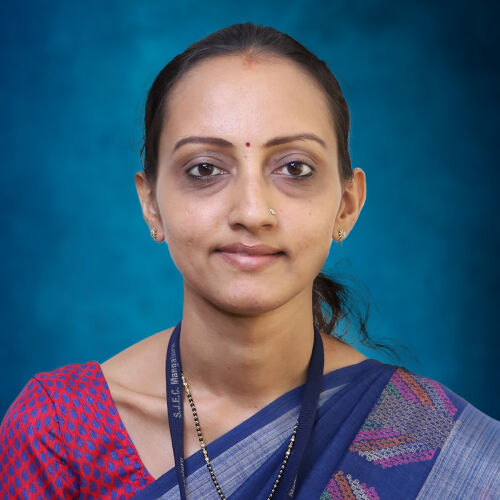 |
Dr Saumya Y M published a paper titled “An efficient node embedding approach via adaptive graph recurrent autoencoder with attention procedures” in Knowledge and Information Systems, https://doi.org/10.1007/s10115-025-02599-9. (SCOPUS, Science Citation Index Expanded (SCIE), Q2). |
| Name | Thesis Title | Research Centre | Year |
|---|---|---|---|
| Dr Chandra Naik | “Computational Intelligence Algorithms for Energy Optimization Problems in Wireless Sensor Networks" | National Institute of Technology, Karnataka, Surathkal. | 2021-22 |
| Dr Karthik K | Automated Quality Enhancement, Modelling and Management of Diagnostic Scan Images with AI Techniques. | National Institute of Technology, Karnataka, Surathkal. | 2021-22 |
| Dr Saumya Y M | A Study on Graph Labelings and Graph Spectra | National Institute of Technology, Karnataka, Surathkal. | 2022-23 |
| Dr Sofia Rego | Prediction of drug-target interaction using machine learning approach. | Manipal academy of higher education (MAHE) | 2022-23 |
| Dr Shrisha H.S. | Design and Analysis of Replacement Strategies for Content Store in Named Data Networks. | Malnad College of Engineering, Hassan, VTU | 2022-23 |
For publications details visit https://sites.google.com/sjec.ac.in/teaching-and-learning-cse/published-journals
| Title | Name of the Students | Project Guide | Funded by | Year of Sanction | Total Amount | Remarks |
|---|---|---|---|---|---|---|
| Android application for fall armyworm identification on maize using deep learning | Evanka Dsouza, Dhanushree, Fathima Suha, K Nisha | Dr Harivinod N | Karnataka State Council For Science and Technology | 2021-22 | 6000.00 | |
| Knowledge Based Scene Graph Generation in Medical Field | Aleema Parakatta (4SO19CS013), Clita Fernandes (4SO19CS043), Dhanyashree (4SO19CS048), Jessica D Souza (4SO19CS066) | Dr. Chandra Naik | Karnataka State Council For Science and Technology | 2022-23 | 5000.00 | The project is also exhibited in the state-level exhibition |
| Promotional email Unsubscription Using Web Extension | Mr Ramgopal P. Ms Prerana C Bangera Mr R. Vinay Ms Rashmitha R. |
Ms Prajna M. Dr Harivinod N. |
Karnataka State Council For Science and Technology |
2023-24 | 4000/- | Completed |
|
Bidirectional Communication System for deaf blind individual |
Ms Lavisha Andri Serrao |
Dr Sridevi Saralaya |
Karnataka State Council For Science and Technology |
2023-2024 | 5000/- | Completed |
| Title | Name of the Students | Project Guide | Industry Collaborated | About the Ptoject |
|---|---|---|---|---|
| HPCL Earth Pit Monitoring App | Amulya Nikitha(4SO19CS017), Calisha Diya Noronha (4SO19CS039), Elena Madtha (4SO19CS049), Glen Rebello (4SO19CS054) | MS Sunitha G | HPCL Petrol Pump | Developed an android application to monitor the earth pit sensor data for the HPCL petrol pump |
For more students Achievement visit: https://sites.google.com/sjec.ac.in/teaching-and-learning-cse/achievements
2024-2025 Achievements
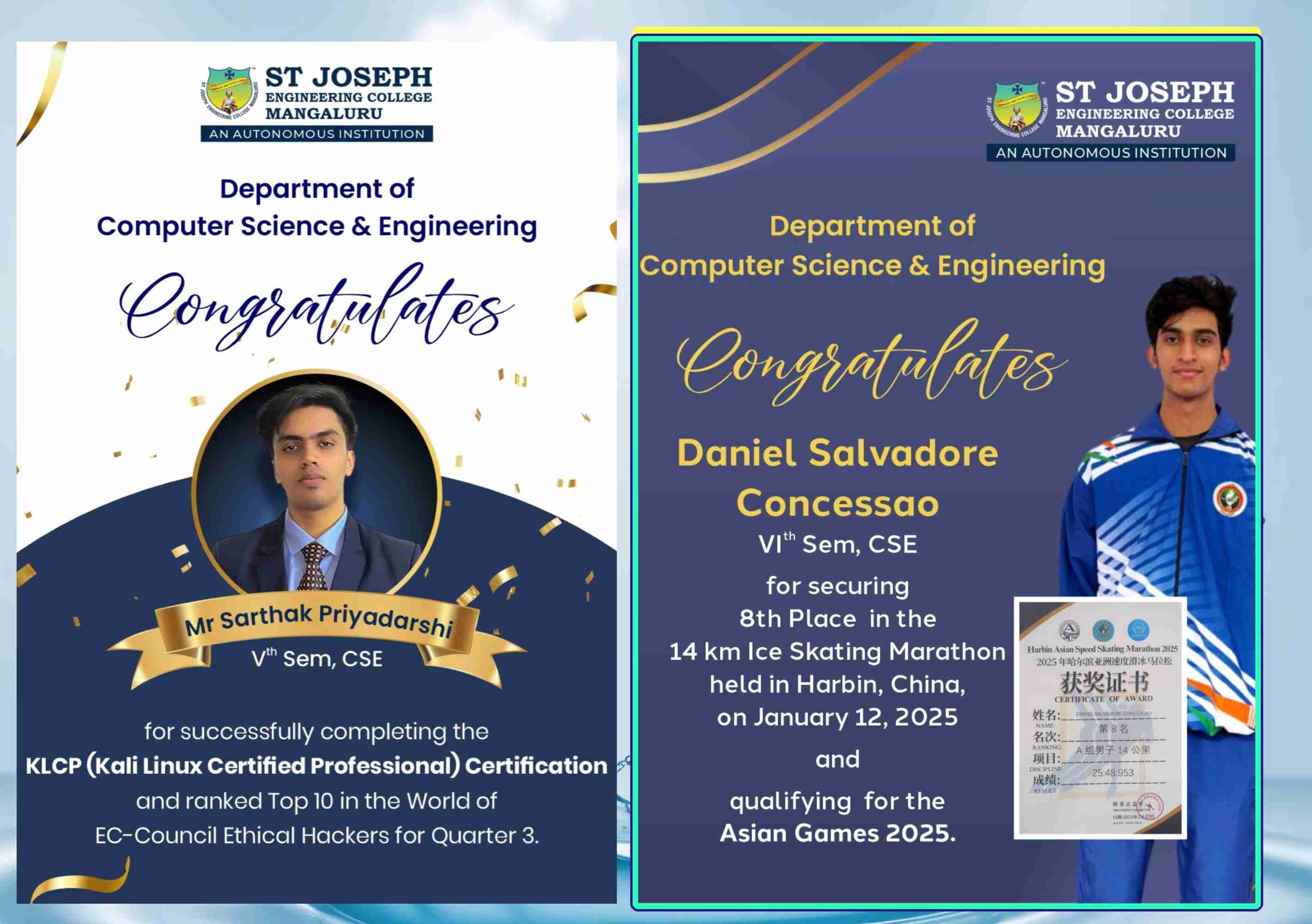
2023-2024 Achievements



Take the first step towards your dreams—apply for admission and transform your aspirations into reality!
Apply Now!